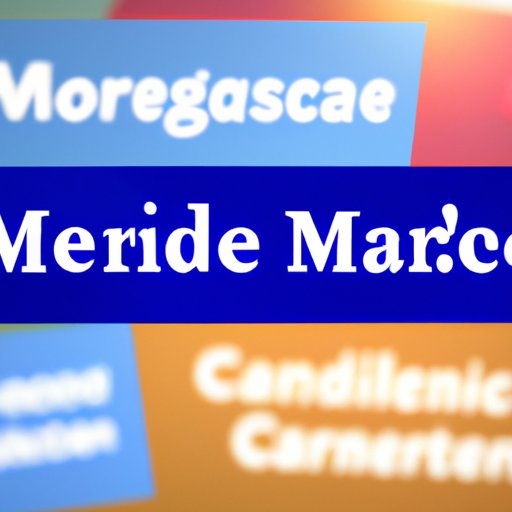Introduction
Dementia is a progressive neurological disorder that affects memory, cognitive functioning, and behavior. It can be caused by a variety of conditions, such as Alzheimer’s disease and stroke. As the condition progresses, it may become difficult for those with dementia to manage their daily activities independently. In these cases, nursing home care may be the best option for providing adequate care and support.
This article explores the complexities of Medicare coverage for nursing home care for dementia patients. The purpose of this article is to provide an overview of the eligibility requirements, coverage options, and alternatives to nursing home care for those with dementia.
Exploring the Eligibility Requirements for Medicare-Covered Nursing Home Care for Dementia Patients
Medicare is a federal health insurance program administered by the Centers for Medicare & Medicaid Services (CMS). It is designed to provide health insurance coverage to individuals who are 65 years of age or older, disabled, or have end-stage renal disease. Medicare covers a range of services, including hospital stays, doctor visits, home health care, and prescription drugs.
In order to be eligible for Medicare coverage for nursing home care, a person must meet certain criteria. These criteria include being 65 years of age or older, having a disability, or having end-stage renal disease. Additionally, the individual must be living in a Medicare-approved nursing home and receiving skilled nursing or rehabilitative care.
It is important to note that Medicare does not cover custodial care, which is defined as non-skilled personal care services such as bathing, dressing, and transferring. Medicare also does not cover long-term care services, such as those provided in assisted living facilities or adult day care centers.
How to Maximize Nursing Home Care Coverage for Dementia Patients Under Medicare
In order to maximize coverage for nursing home care for dementia patients under Medicare, it is important to understand the different types of nursing home care covered by Medicare. Skilled nursing care includes services such as wound care, intravenous therapy, and physical therapy. Medicare will cover up to 100 days of skilled nursing care in a nursing home following a hospital stay of at least three days.
In addition to understanding the types of care covered by Medicare, it is important to establish eligibility for long-term care insurance. Long-term care insurance policies can help cover the costs of nursing home care beyond what Medicare covers. Additionally, it is important to explore other financial resources that may be available, such as charitable organizations and fundraising efforts.
What Financial Assistance is Available for Dementia Patients Seeking Nursing Home Care?
In addition to Medicare and private insurance policies, there are other sources of financial assistance available for those seeking nursing home care for dementia patients. Medicaid is a government-funded program that provides health insurance coverage for those who meet certain income and asset requirements. Other government programs, such as the Veterans Administration Aid and Attendance Benefit, may also provide financial assistance for nursing home care.
Private insurance policies may also provide coverage for nursing home care. Many employers offer long-term care insurance plans that can help cover the costs of nursing home care. Additionally, there are a number of charitable organizations and fundraising efforts that may be able to provide financial assistance for those seeking nursing home care for dementia patients.

Exploring Alternatives to Nursing Home Care for Dementia Patients
In addition to nursing home care, there are a number of alternatives that may be appropriate for dementia patients. In-home care services can provide assistance with activities of daily living, such as bathing, dressing, and meal preparation. Adult day care centers provide socialization opportunities, as well as supervision and assistance with activities of daily living. Assisted living facilities provide a more independent living environment while still offering support services.

Examining the Pros and Cons of Nursing Home Care for Dementia Patients
Nursing home care can provide a safe and supportive environment for those with dementia. Nursing homes typically have 24-hour staff on hand to provide medical care and supervision. Additionally, nursing homes often provide social and recreational activities, which can help reduce feelings of loneliness and isolation.
However, there are some potential downsides to nursing home care for dementia patients. Nursing homes can be expensive, and many do not accept Medicare or Medicaid. Additionally, nursing homes can be impersonal and isolating, and residents may feel disconnected from family and community.

Navigating the Complexities of Medicare Coverage for Nursing Home Care for Dementia Patients
Navigating the complexities of Medicare coverage for nursing home care for dementia patients can be a daunting task. Working with a geriatric care manager can help make the process easier. A geriatric care manager is a professional who specializes in helping families navigate the complexities of long-term care planning.
It is also important to understand the Medicare appeals process. If Medicare denies coverage for nursing home care, it is important to appeal the decision. The appeals process can be complex, but it is possible to overturn a denial of coverage.
Conclusion
Nursing home care can be a beneficial option for those with dementia who need additional support and supervision. However, navigating the complexities of Medicare coverage for nursing home care for dementia patients can be challenging. Understanding the eligibility requirements, coverage options, and alternatives to nursing home care can help ensure that those with dementia get the care they need.
(Note: Is this article not meeting your expectations? Do you have knowledge or insights to share? Unlock new opportunities and expand your reach by joining our authors team. Click Registration to join us and share your expertise with our readers.)
